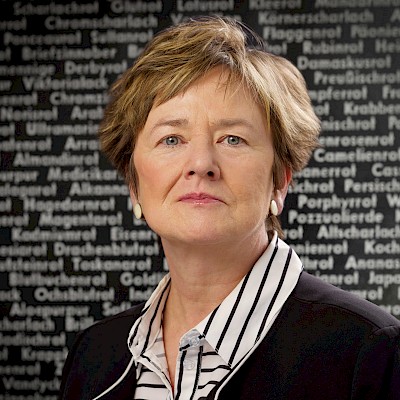Gudrun Gersmann studied History, Romance studies and German literature in Bochum, Geneva and Paris. In 1991, she received her Ph.D. from the Ruhr-University Bochum. In 2000, she finished her Habilitation on the subject of witch-hunts in early modern Muenster (Westphalia) at the LMU Munich.
Since 2004, she is a professor of Early Modern History in the Department of History at the University of Cologne.
She was director of the German Historical Institute, Paris (2007-2012), Vice-Dean of the Faculty of Arts and Humanities (2013-2015) and Vice-Rector for International Affairs (2015-2017) at the University of Cologne.
In January 2017, she became a knight of the French Legion of Honour.
Von »Honvlez« zum »Baron von Hüpsch«: Die (auto)biographischen Metamorphosen eines Sammlers des 18. Jahrhunderts
Jean Guillaume Adolphe Fiacre Honvlez also known as „Baron Adolf von Hüpsch“ (1730 -1805) was an important collector, reformer and polymath in 18th-century Cologne. In 1760, he founded a cabinet of curiosities which contained up to 15 000 pieces of art and became well-known far beyond the city boundaries. His remarkable collection is now part of the Hessisches Landesmuseum Darmstadt.
The research project pursues two aims:
1. Reconstruction of Honvlez / von Hüpsch's biography as an example of »self-fashioning« according to Stephen Greenblatt by examining von Hüpsch’s estate and analyzing different perspectives on his biography.
2. Reconstruction of a Cologne collectors network during the »Sattelzeit« (1750-1850) with special focus on methods of collecting, exchanging or donating pieces of art.
